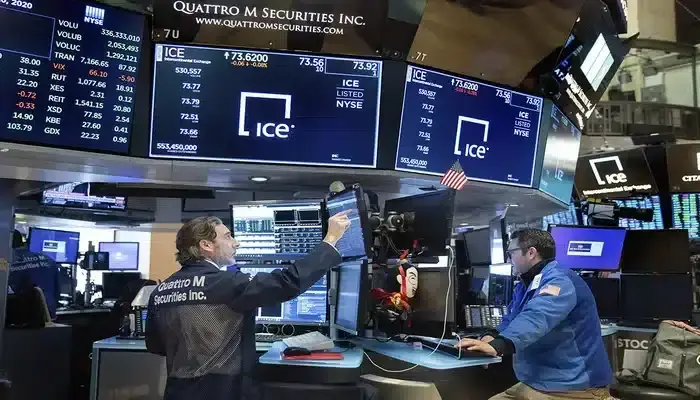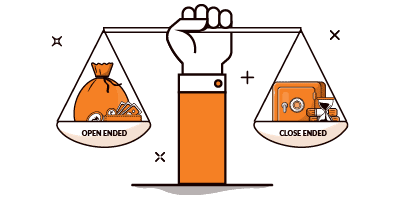Investment Trust vs Funds: Which One is Riskier?
If you are looking to invest as an expat or high-net-worth individual, which is what I specialize in, you can email me (advice@adamfayed.com) or WhatsApp (+44-7393-450-837).
What are Investment Trusts?
Investment trusts are a type of collective investment that consist of a selection of individual assets, each of which is picked and managed by a separate investment manager. However, in contrast to other types of collective investments like open-ended investment company (OEIC) and unit trusts, they have a number of characteristics that set them apart.
Investment trusts are by far the most established form of collective investment, having made their debut in the 1860s. In spite of their names, these businesses are actually corporations that are traded on the stock market. You can make an investment in them by purchasing shares, the price of which is determined not only by the price of the core assets but by market supply and demand as well.
Since they are also corporations, they have boards of directors and hold shareholder meetings, while mutual funds do not.
Because of these distinctions, investment trusts appeal to certain investors, who have the expectation that they would perform better than other forms of funds.
There is a live pricing during the day for investment trusts, which means that you can trade at any point and you will see the precise price at which you are acquiring or disposing. This is due to investment trusts’ being closed-ended, which means that the management of the fund has access to a predetermined amount of capital to invest. This may be more appealing to some investors than other types of investments.
The value of the fund’s fundamental investments is always reflected in the units of a mutual fund, which are called fund shares. The same does not apply to investment trusts. This is due to the fact that investors can acquire and offload shares of the investment trust on the market just like they would regular stocks, and the market facilitates this activity. Instead of only reflecting the value of the assets, the share price will be reflective of the market attitude.
Because of this, the price could be different from the value of the portfolio of securities that the investment trust is based on, depending on how much demand there is for the investment trust alone.
If the stock market’s performance is below par, an investment trust would probably trade at a price that is lower than the value of its holdings. On the other hand, if the stock market’s performance is rather exceptionally well, the share price may even be higher than the value of the assets that are being held within the investment trust.
Investment Trust vs Funds: Trading at a Discount vs a Premium
The total value of the underlying assets of an investment trust, sans the value of any liabilities the trust may have, is referred to as the net asset value (NAV). One of the most important aspects of investment trusts to comprehend is the fact that you have the option of purchasing them at a discount, the price that is lower than their NAV, or at a premium, the price above their NAV.
This is possible due to the fact that investment trusts are structured similarly to companies and are traded separately on the London Stock Exchange (LSE). The value of its shares, like those of other publicly traded corporations, is determined by market sentiment; that is, what investors believe the shares are worth.
Depending on the underlying portfolio, investment trusts will typically trade at either a discount or a premium; in some cases, the two prices might be significantly off from one another, particularly in troubled markets.
When you acquire shares in an investment trust at a discount, you are essentially receiving a deal, which is why many people consider this to be a fantastic investment opportunity. In a sense, you are getting a bargain, yet it’s not quite that straightforward. A discount may be applied to the trading price of investment trusts for a variety of reasons, including the following:
- A lack of faith in the management of the trust
- A faltering or unpopular industry in which the trust operates
- Apprehension regarding the trust’s potential exposure to significant liquidation expenses in the event that it were to dissolve, auction its assets, and distribute the money to its shareholders

If a trust consistently trades at a significant discount, you could find that realizing the value of the discount requires you to offload the trust at a price that is closer to the NAV of the underlying investments at a certain point. Nevertheless, if a trust consistently trades at a substantial discount, you may find that realizing the value of such discount isn’t particularly easy.
In order to determine whether or not you are getting a decent deal, you need to investigate the past performance of an investment trust to learn how much of a discount it has traditionally offered.
The same is true for trusts that are now selling at a premium, which is not to say that you should rule out making a purchase.
The practice of trading investment trusts at a premium is much less common. When they do, it is typically because there is a need for the investment manager’s particular skill. However, it is important to practice prudence before making an investment in a trust that is currently selling at a premium.
The volatility in the discount or premium must be very minor in compared to the returns provided by the core assets for investors who acquire and hold assets for an extended period of time.
Just keep in mind that investment trusts are intended to be kept long term, typically for a period of at least five years.
Investment Trust vs Funds: Investment Trusts Gearing
Another significant distinction between investment trusts and other types of funds is that investment trusts are permitted to engage in gearing, sometimes known as borrowing more money for investments, but unit trusts are not. This indicates that investment trusts are able to take greater risks, which may result in possibly larger benefits but also potentially larger losses.
Gearing is considered to be beneficial for shareholders when the trust achieves a yield on the money loaned that is larger than the interest being paid on it. This helps to boost profits overall for the shareholders. When market conditions improve, the price of a share in a geared trust will improve more quickly.
However, when market conditions deteriorate, the share price of a geared trust will drop even more which can be unsettling. Because of their use of gearing, investment trusts might experience greater risk over shorter periods of time, and their shares can be more unstable than those of other assets.
However, there are severe limitations placed on the amount of gearing that can be used by an investment trust. M Although a maximum of 25% to 30% is typical, in actuality the majority of trusts do not even get up to the 25% to 35% typical level.
Investment Trust vs Funds: Investment Trusts Fees
It is definitely accurate to say that yearly fees for investment trusts are significantly cheaper than those for their open-ended counterparts.
In spite of this, investors should know that around 33% of investment trusts are subject to a performance charge, whilst only about 5% of unit trusts are subject to such a cost.
This, in part, is because a growing number of investment trusts give exposure to more niche markets.
Investors should evaluate the precise costs of the funds or trusts they consider investing in since both inexpensive and pricey examples can be found in each category of investment vehicle.
When investing in the stock market, investment trusts can provide quick diversification at a cheap cost; however, it is essential to be aware of the inherent dangers associated with these investments.
Investment trusts have historically held a lower level of popularity compared to mutual funds; however, this is beginning to shift. According to statistics that were released by the Association of Investment Companies (AIC), the amount of money invested in these trusts hit an all-time high in the past year.
Additionally, the dividends paid out by some investment trusts have been growing year after year.

Now, Let’s Define Investment Funds
An investment fund is a legal body that is created with the primary intention of owning a certain asset or resources that are related to that asset and generating capital in relation to those assets. It is sometimes referred to as a collective investment scheme, or CIS, and it is a type of investment vehicle that pools the funds supplied by a number of individuals for the purpose of investing in derivatives, fixed-income securities, shares, as well as other financial instruments.
People now have access to markets that would otherwise be difficult for them to invest in on their own thanks to the availability of these vehicles, which also contribute to the diversification of investments. They entrust the investors’ money to investment managers, who scour the market for the finest prospects to make a return.
Individual investors have no any say in the decisions that are made regarding the allocation of an investment fund’s assets while using investment funds. They just pick a fund to invest in depending on its objectives, level of risk, fees, and any other relevant considerations.
It is possible for an investment fund to have a broad basis, like an index fund that follows the S&P 500, or it might have a very specific focus, like an exchange-traded fund (ETF) that invests primarily in minor tech businesses.
Although there have been investment funds in many different formats for a considerable amount of time, the Massachusetts Investors Trust Fund is usually regarded as the first open-end mutual fund ever established in the sector.
A fund manager is responsible for the oversight of the fund and makes decisions regarding the securities it should invest in, in what amounts, and at what times the fund should buy and sell stocks.
Investment Trust vs Funds: Perks of Mutual Fund Investments
People are given the opportunity to apply techniques to invest in a variety of financial markets and products anytime they desire through the use of investment funds. In addition to offering favorable tax treatment in a variety of territories, they make the terms and conditions for redemption or transfer of assets quite flexible.
Investment Trust vs Funds: How exactly does the operation of a mutual fund work?
As you make an investment in a fund, your money and the money of the other investors are combined into a single pot. After that, an investment will be purchased, held, and eventually sold on your behalf by a fund management. Your exposure to risk is reduced or diversified when you purchase shares in a fund that holds a variety of investments.
For instance, a fund that invests in equities issued by companies based in the UK is likely to contain shares issued by companies operating in a variety of market segments within the British economy.
The majority of the time, a fund will only own a single sort of asset, often either shares or bonds. However, there are many who focus on alternative investments too, such as commercial property, rather than traditional ones.
On the other hand, there are portfolios that have exposure to a wide variety of asset classes. For instance, multi-asset funds are able to hold a variety of assets, including stocks, bonds, real estate, cash, commodities, and even other funds.
Providing investors with access to a diverse selection of investment options is among the most significant benefits offered by funds. Because you have made this decision, you will be able to manage risk, diversify your holdings across any combination of various assets, and access a wide variety of markets and nations.
Investment Trust vs Funds: Distinct Categories of Investment Funds to Pick From
There are many different kinds of investment funds and each one has its own particular qualities.
- Money market funds — investment vehicles that buy and sell short-term fixed income securities.
- Real estate investment trusts, or REITS — not inherently related to the financial sector.
- Foreign funds — often known as funds that are permitted for use in international trade
- Bonds, stocks and mix funds.
- Investment funds that are fully as well as partially guaranteed.
- Funds with passive management and replicate the performance of a specific index.
- Absolute return funds — seek to earn good returns irrespective of the direction that the market is moving in.
- Hedge funds — investments that seek to maximize profits regardless of the direction of the market.
- Global funds — bound by a unique set of regulations.
Investment Trust vs Funds: Open-end vs Closed-end
Open-end mutual funds hold the lion’s share of the assets that are held by investment funds. When investors put more money into the pool, the fund issues additional shares, and when they take their money out, the fund retires shares. In most cases, the pricing of such funds takes place only during the close of the trading day.
When it comes to trading, closed-end funds are more analogous to stocks, and they are managed investment funds which distribute a set number of shares. They are also traded on an exchange. Closed-end funds are also known as closed-end investment companies. During the time when the fund’s NAV is being determined, the fund will trade according to the supply and demand of investors. Because of this, a closed-end fund’s market price could be above or below its NAV.
The development of ETFs came about as a response to the demand from investors for investment vehicles that offered greater flexibility than mutual funds. ETFs are traded on exchanges in the same way that closed-end funds do, and their prices and availability for trading are both maintained during the trading day.
ETFs typically have the extra benefit of having cost ratios that are slightly lesser than their comparable mutual fund counterparts.

Investment Trust vs Funds: Hedge Funds
One sort of investment that is separate from mutual funds and ETFs is known as a hedge fund. Accredited investors are eligible to participate in this fund, which is an actively managed product and is subject to less regulation from the federal government. It is allowed to invest in a wide array of asset classes with numerous investment strategies at its disposal.
For instance, a hedge fund could pair stocks that it wants to short to earn from sliding stock prices with equities that it anticipates to jump so as to reduce the likelihood of incurring a loss. This is done in order to minimize the risk of financial ruin.
On top of stocks, bonds, ETFs, commodities, and other alternative assets, hedge funds frequently invest in assets that carry a higher level of risk. These are financial instruments that can be bought with leverage, often known as borrowed money, and comprise derivatives like futures and options.
Investment Trust vs Funds: How to Decide Which Investment Fund is Right for You
It is crucial to get as much information as possible about an investment fund’s features, including its risks, fees, and other components, and to devote sufficient time studying it to make the best decision in selecting which one suits you best.
As an investor, you need to evaluate your individual situation, including your financial situation, your goals, and the amount of risk you would be willing to take on. This will ensure that your investments are appropriate for your situation.
The length of the investing period is an important consideration. Each fund has its own set of conditions regarding the assurances it provides, the length of time it retains investments, and the industries in which it makes investments in. You should never put more money into the market than you can comfortably afford to lose. A fund’s redemption and management fees, as well as its term and rate of return, are also important considerations.
Investment Trust vs Funds: Risks and Prospects
It is true that investment trusts are more difficult to understand than open-ended mutual funds due to the presence of discounts and premiums, which make them more volatile.
Another reason why investment trusts carry a higher level of risk compared to open-ended funds is that they can loan funds in order to invest. Because of this, investors who choose to hold their money in investment trusts should be ready for a more turbulent ride than they would normally experience when dealing with traditional investments.
When dealing with illiquid assets such as commercial property, investment trusts are typically the best form of investment to use.
It could be difficult to dispose a shopping center or an office building on short notice, so open-ended funds may be forced to halt trading if a large number of investors request for the return of their funds at the same time.
The ability of investment trusts to efficiently save a portion of their dividend revenue during favorable time so that it may be used to supplement dividend payments in less favorable seasons may also be advantageous to people who are looking for other sources of income. Such is also thanks to its potential to generate a more consistent income source.
On the other hand, investors who are looking for a straightforward tracker fund to put their money in will be better off with open-ended funds since there are no passive investment trusts at the moment.
Before you put money into something, you should keep in mind that the value of that something could go up or down, and that either way, you could end up ahead or behind.
Pained by financial indecision? Want to invest with Adam?

Adam is an internationally recognised author on financial matters with over 830million answer views on Quora, a widely sold book on Amazon, and a contributor on Forbes.



